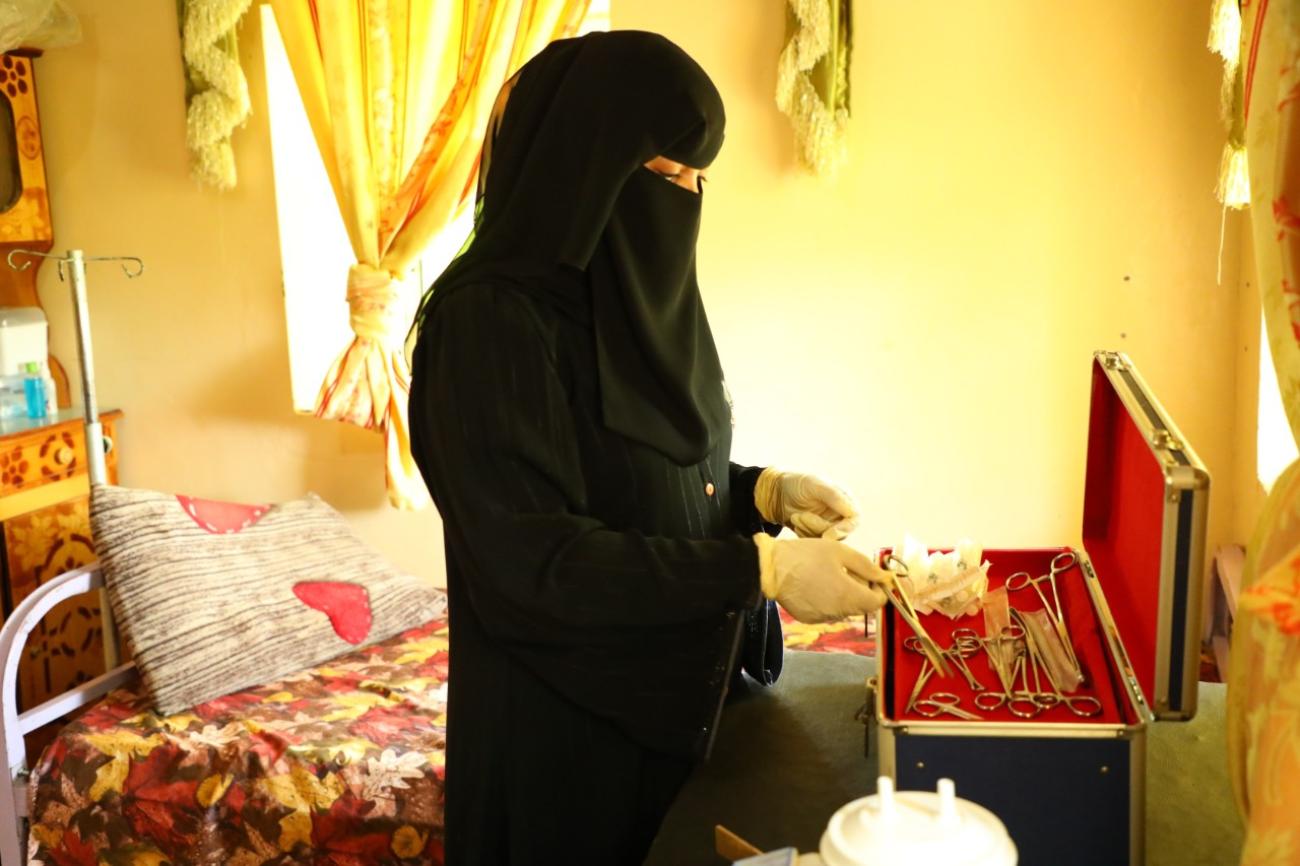In the corner of a room containing nothing more than a small bed and a medicine cabinet, a midwife places a stethoscope over her ears and opens a big bag full of surgical tools. This is a delivery room inside a small house in the rural village of Bani Mohammed in Taiz Governorate.
“As a young woman, I was horrified by the experiences of pregnant women suffering delivery complications, prolonged over the long journey to the nearest health facility,” Bassima, a tireless midwife explains.
Bassima, a proactive young woman, lives a seemingly regular day-to-day life with her family. But thanks to Bassima’s mother, the lives of many women in her village were changed for the better. A caring woman, she has spent her entire life assisting safe childbirth. A role model to so many, she instilled a sentiment of responsibility and willingness to extend a helping hand to others in her neighbours, friends and her in her thirty-five-year-old daughter, Bassima.
Following in her mother’s footsteps, Bassima was working as a volunteer midwife in one of the village clinics, a half hour walk from her home. After two years, she moved to At Turbah city, where she successfully completed a three-year diploma in midwifery. With determination and diligence, Bassima gathered the strength she needed to complete her education and overcome difficult financial challenges.
"During the three academic years, I was away from home, and I remember that I slept hungry some days,” she says. Once graduated, Bassima struggle to equip her maternity clinic and start her career, but she never gave up hope.
"As a member of the local community committee, I helped prepare a list of vulnerable women who aspire to run their own businesses, improve their living conditions and become more self-reliant. Later, I discovered that I was also selected...what a great feeling! It is inexpressible,” she explains.
Bassima joined a 10-day training course on business management, and then received a US$ 600 seed grant to purchase equipment for her clinic. Now, she helps deliver 10 babies per month, charging only what the family can afford unconditional fee. "It's a non-profit business that’s main aim is to serve the community,” she declares.
When Amira Saeed was pregnant, she couldn’t afford to travel 1.5 hours to the nearest hospital. As a result, she couldn’t access the antenatal care she needed. As her delivery day was approaching she became worried. She asked herself, where will I deliver my baby? Can my husband and I afford the hospital expenses and transportation cost? As the birth drew closer, she learned from other women in her village that there was a midwifery clinic close by that provided professional services for an affordable fee. This news was exciting and weeks later, Amira delivered her baby safely.
“I realized, nothing is impossible,” Bassima declares. “Not only did this project economically empowered me, but also gave me a leading role in my household. Now, I can say that I am a decision-maker. I can study whenever I want, I work out of the house late at night if necessary, and most importantly, I plan for my future independently,” she announces happily.
***
These activities were implemented as a part of the Supporting Resilient Livelihoods and Food Security in Yemen Joint Programme (ERRYJP II) in partnership with OXFAM and generous funding and support from the European Union (EU) and the Swedish International Development Cooperation Agency (Sida).



